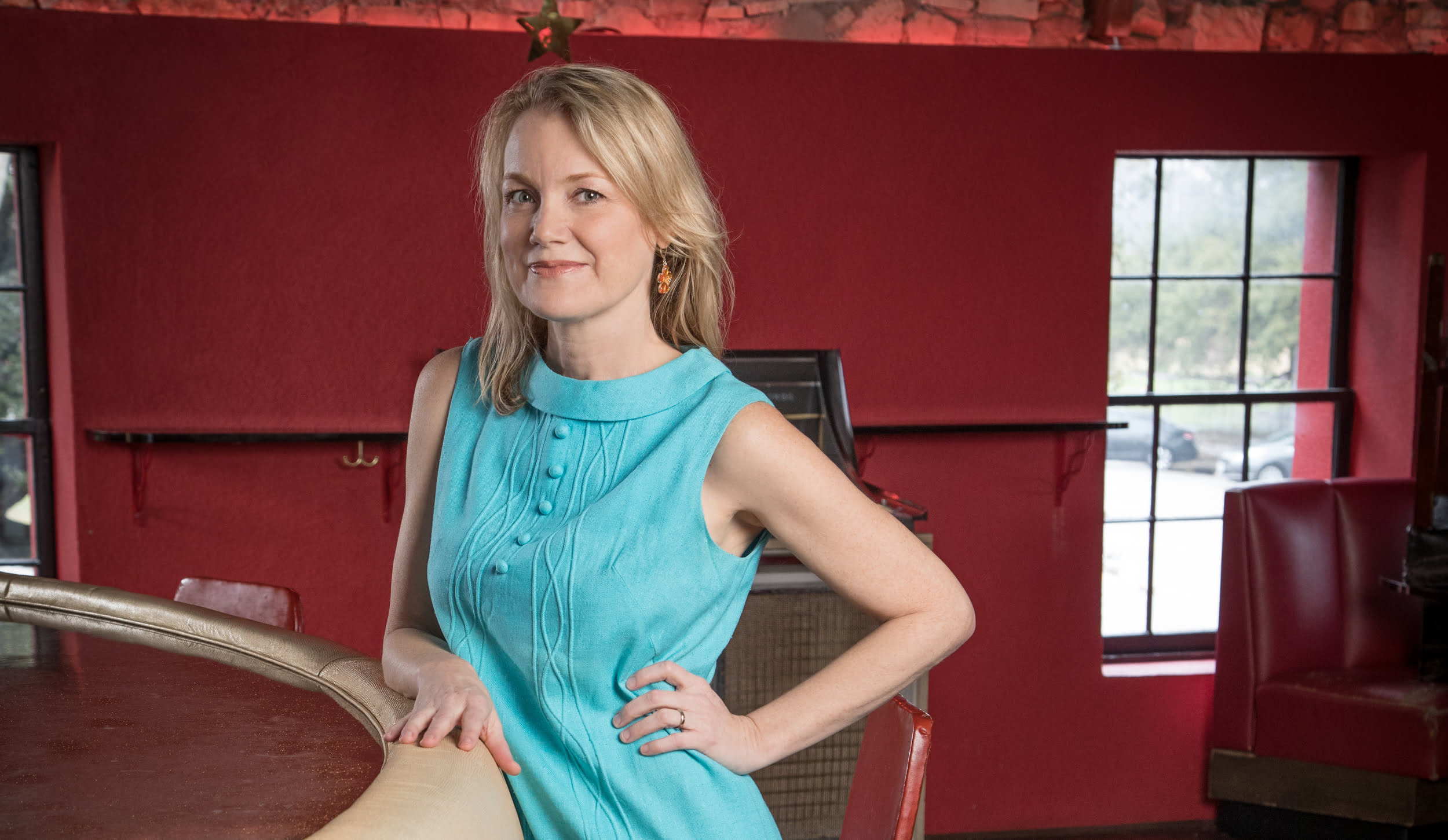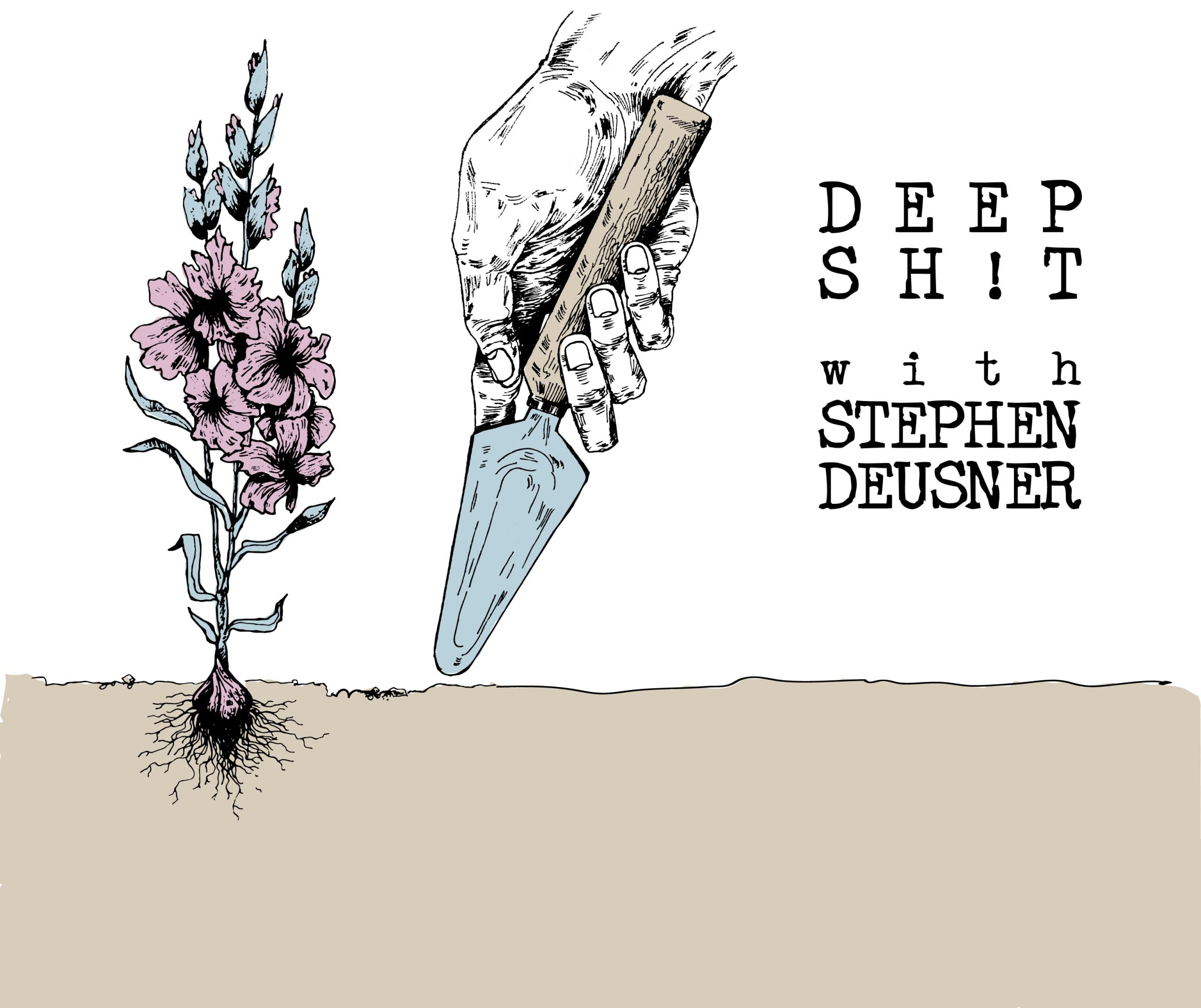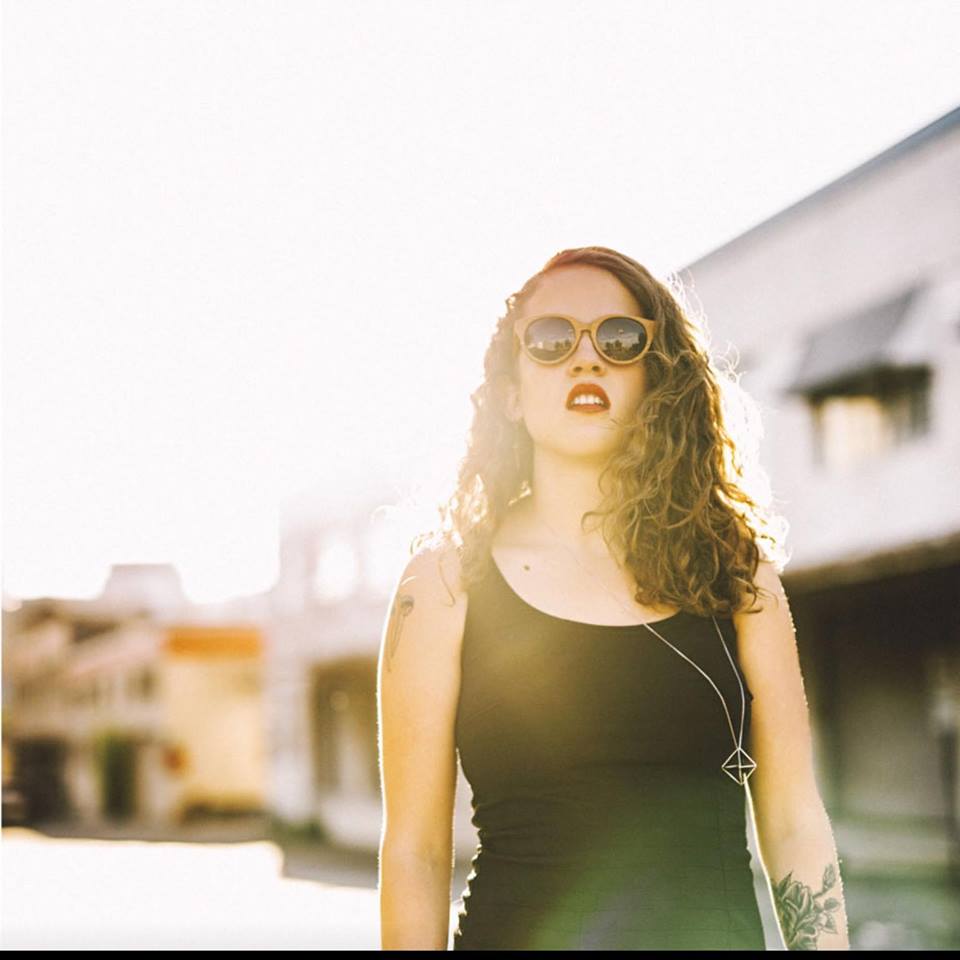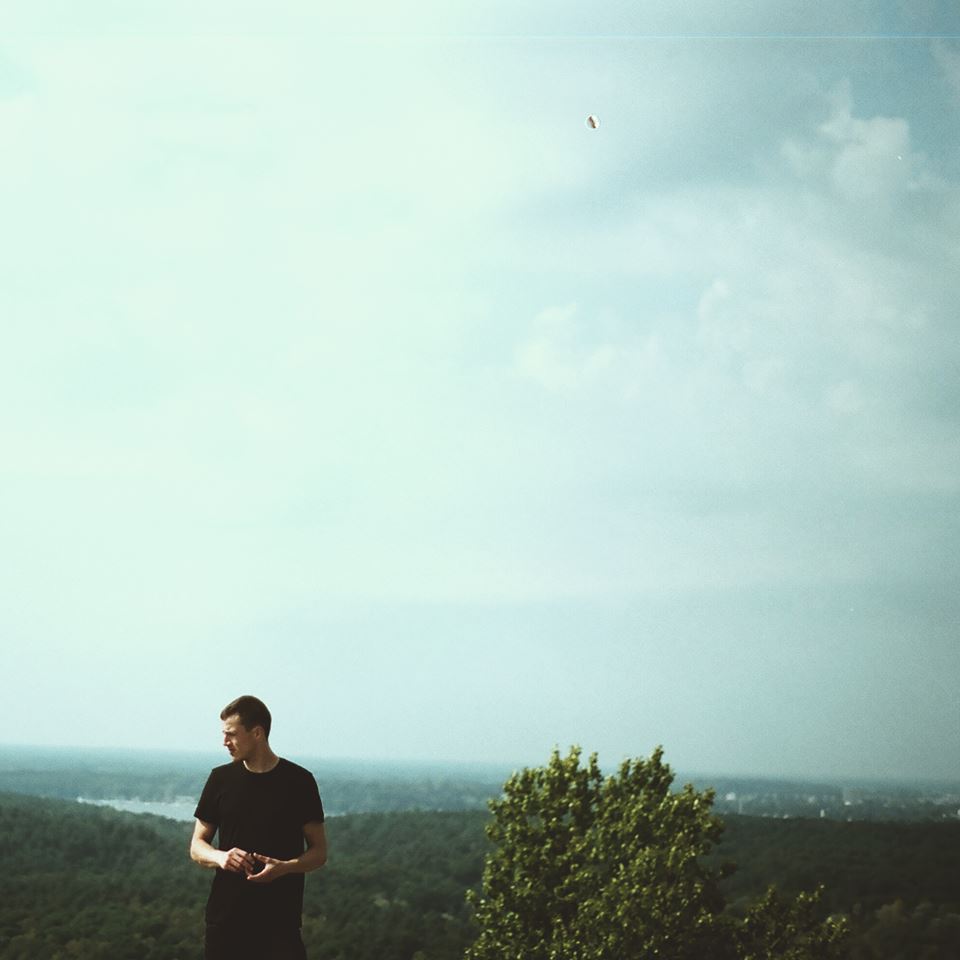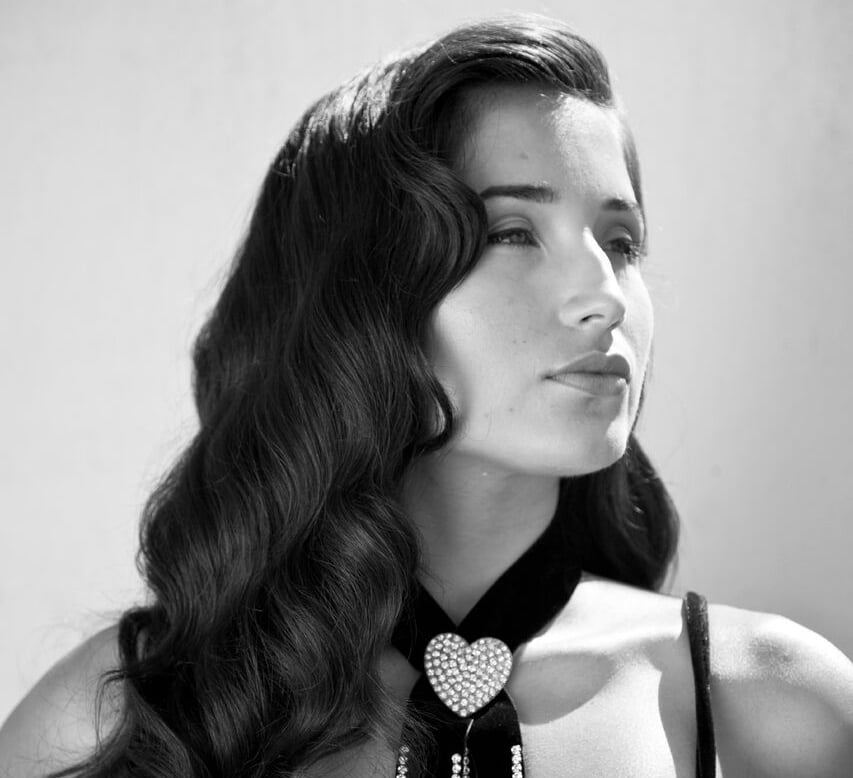Kelly Willis almost gave it up 20 years ago. After being dropped by not one but two major labels, the Lone Star singer/songwriter wondered if there was room for her in country music. “It was a huge struggle,” she says today. “I just didn’t know if there was a place for me. I wasn’t going to stop making music, but I didn’t know if I was going to be able to keep making records.”
Fortunately, Willis broke through on 1999’s What I Deserve, an album of dusty, sturdy country tunes that introduced her sharply broken-hearted voice to a wide audience and allowed her to settle into the industry on her own terms. Her story is proof that artists can still thrive professionally well outside the mainstream, and her longevity is almost as impressive as the music she makes, both as a solo artist and as a duets partner with her husband, Bruce Robison.
Back Being Blue is Willis’s first album in more than a decade, and even its title announces a return to what she does best: singing low and lonely country tunes that signal a deep understanding of country music without sounding beholden to any one particular trend or tradition. The title track is a languid third-wheel lament with a breezy country-funk rhythm section. “I’m a Lover Not a Fighter” is an energetic Texas swing cover of the Skeeter Davis hit. “Modern World” sets an elastic pop groove loose in a middle-of-nowhere roadhouse. “Freewheeling” is a spare countrypolitan weeper that she describes as the most personal song on the record.
Produced by Robison and recorded in his rural Texas studio (“I was driving out there one morning and almost hit a huge hog in the middle of the road!”), Back Being Blue sounds like a survey of the influences that have informed each one of her albums, from swing to twang to punk. Uniting these diverse sounds is a voice that conveys dignified heartache as its default setting.
This is your first solo record in 12 years. What inspired you to make a return?
I was having a lot of fun making records with Bruce, and that was taking up all my time and energy. I tried to force myself to get into the studio a few times over the years, but it really felt forced. Honestly, I think what happened was that I wrote that song, “Back Being Blue,” and when I finished it, I felt like there was a shift in my world: “Oh, okay, now I know what I’ doing.” The ball just got rolling. I had something I wanted to say. I had motivation. All it took was a little light bulb going off.
What about that song opened things up for you?
There was a simplicity about it. I’d been trying to write some really impressive songs — deep, meaningful, complicated songs — and none of them were coming together. Then this one came along, and it sounded so simple. It reminded me of the songs I was listening to when I was first getting into music — something from the ‘50s or ‘60s, like Buddy Holly or someone. It just had this vibe that got me excited to write more in that vein. It did open things up, because it gave me some ideas for the choices you make, when you’re writing a song. I could do that. “Okay, let’s simplify.” Or, “Let’s do an old-time country sound.” When you have some direction, it helps you make those decisions.
One of the things I was trying to do was get more universal and less specific about the details of my experience. They’re based in my experience, of course, but I wanted to broaden it and take out the little details. A song like “Freewheeling” is more personal. But they’re all personal, right? It’s all about heartbreak and love, and you draw on your own memory of that, when you’re writing and singing. And that’s what I love about country music. I love being able to sit at a bar with a beer and listen to the jukebox and hear a song that speaks to you. It makes you feel so much better to hear somebody express your own feelings. You feel like you’re not alone.
Did you know at the time that you were writing for a solo album? Or did you think these songs might end up on a duets album?
It was always going to be a solo album. It was time for that. Bruce and I always knew that we were not closing any doors, when we decided to play together; we were just opening more doors. So we were fully aware that we would go back to making solo records again. It just felt like the right time. He made one a year ago, and then I finally got it together to make mine. I wanted to have a record with a purpose and a point. I got lucky with that. I like a deadline, and maybe the deadline helped.
Did you give yourself a deadline, or was one imposed on you?
Bruce and I have to take turns with this stuff, due to our family schedule. It was really the most opportune time for me to make it happen, and it made sense to have it out before the summer, because that’s the best time for me to tour. If you back up from there, you know you have to get it done by this point, which helps me get started writing and recording and seeing what I’ve missed and what I still need to do.
I really thought I wouldn’t make this record with Bruce. I thought we would benefit from having a breaking in all the problem-solving that we have to do together, either raising a family or being in a band together. It seemed like a good chance to do something different and to miss each other. But he was so encouraging about the songs I was writing, and he really got what I envisioned. He would suggest that I work on that song some more or maybe do something with the tempo on this song. I shared with him this playlist of songs that were inspiring me, and he was like, “Oh, there’s a specific reverb on all of these.” He was a great partner, and it made sense to do this together. The conversation was easy. It felt like a no-brainer.
Did you look into other options for producing or recording?
I definitely thought about it. I had a list of names to consider, but I didn’t want to have a big-name producer just to have a big-name producer. And I know myself: I know I’ll lose confidence in what I want to do. If I’m around someone who has a style of their own, I’ll just say, “Your style is great, so let’s just do that,” rather than sticking with whatever weird, quirky thing I wanted to do. Since I hadn’t made a record in a long time, I wanted to stay true to my little artistic expression. Half the fun, for me, was figuring that out and trying to create a unique sound. I thought about a lot of different things, but this felt like the right way to go.
You mentioned a playlist. Who all was on there?
I had some Nick Lowe and some Marshall Crenshaw, the Louvin Brothers, and Skeeter Davis. I think we managed to represent all of my inspirations on there, and it’s stuff that has contributed to the music I’ve made over the years. I was thinking about when I first moved to Austin and started making music, when I was in a rockabilly band and people were really starting to experiment with blending country and punk. First it was called cowpunk, and then I don’t know all the different names it had. I just knew I wanted to look at some of my favorite music that really made me want to make music myself.
What did you learn revisiting some of that music? Did you hear it differently so many years later?
I probably listen to that stuff frequently enough that it didn’t feel like something I was going back to. But when you’re listening to figure it out, you think of it in a different context. It was fun to hear what people were doing with reverb, especially some of those country artists in the ‘60s. That reverb is so cool. We tried to do some of that, but it didn’t work in this modern context. It was fun to revisit Skeeter Davis and think back on my first foray into being in a band.
I was a huge rockabilly fan, so Wanda Jackson and those artists were heroes to me. I felt like I could hear the evolution of my own singing. When I first started singing, I would just copy those people, but I would lose my voice trying to belt like them. It can be embarrassing, but that’s an important part of the process and, eventually, you do find your own voice.
You signed with a major label and released three albums in the early 1990s. Did that disappointing experience affect your relationship to that material? Do you hear those songs differently now?
Some of them I do. I’ve had my favorites that I’ve clung to over the years. Although, at this point, I’ve done so many records that I can’t do more than one song from some of those older ones. And there are only a handful of people in the crowd who go all the way back to the first albums. A lot of people first heard of me when I did What I Deserve, so they might not be familiar with my three MCA records. I always like to do “I Don’t Want to Love You” and “River of Love” from [1990’s] Well Traveled Love. And I do “Hidden Things” from [1991’s] Bang Bang. I try to stay familiar with those records so that, if somebody calls out a song from one of them, we can play it. It’s a little tricky, but I’m proud of that material.
When I made those records, I remember distinctly thinking I was always in the opposite of whatever the prevailing trend was. When I wanted to do Fender guitars, everybody else was doing fiddles. When I brought fiddles back in, they were doing Fender guitars. It seemed like I was out of step with whatever was happening at the moment. But I was at least staying true to my vision.
The first time I heard you was on your cover of Townes Van Zandt’s “Rex’s Blues,” off the Red Hot & Country compilation. How did you that come about?
That was a really cool turning point for me. I had been dropped from my MCA deal, and I was trying to start over. I thought I needed to be at a label that would look at me like I have no history whatsoever and just let me create whatever it is I wanted to create without them trying to decide who I am. I was signed to A&M and released an EP, even though I never released a full-length album.
At the time, the Red Hot & Blue people asked Jay Farrar to do a song for that album. At first, they wanted it to be all duets, and they asked him who he wanted to sing with. He picked me. It was a wonderful experience to make music with him and be part of that project, and it really opened people’s ears to me. It made people look at me differently, I think: “Oh, if Jay Farrar wants to sing with her, then maybe there’s more there than we thought.”
After having so much trouble with labels, did you ever think about quitting?
When I got the chance to make What I Deserve [in 1999], I really thought that it was going to be the last record I would get to make. I was only 19 or 20, when I got signed to my Nashville deal, and I had made these three records that were not what they wanted. It was a huge struggle, in that regard. I just didn’t know if there was a place for me after that. I wasn’t going to stop making music, but I didn’t know if I was going to be able to keep making records. Luckily, What I Deserve ended up being the most well-received record I’ve made, and it gave me a fresh start.
And now it seems like you’ve carved out this very particular niche for yourself in the country music community.
I hope so. Don’t quit. Don’t stop. Just keep going. A lot of my favorite musicians just keep going, and what they’re contributing is really worthwhile and valuable. I’m grateful that they’re still doing it. I think I was lucky that I made my entrance when I did, because I got this national exposure with MCA and a kind of platform that other artists these days aren’t given. These days, labels aren’t investing in young artists. They’re not grooming them or giving them time to grow. I was lucky to get to do that.
And I live in Texas, where there’s a great music community throughout the state. You can play and play, and people always come out. I think it has something to do with the dancehall culture, which was such a community experience. Everybody went out to dancehalls and took their families, and that became part of the culture here. Whatever the reason, I feel lucky to be here.
Photo credit: George Brainard
